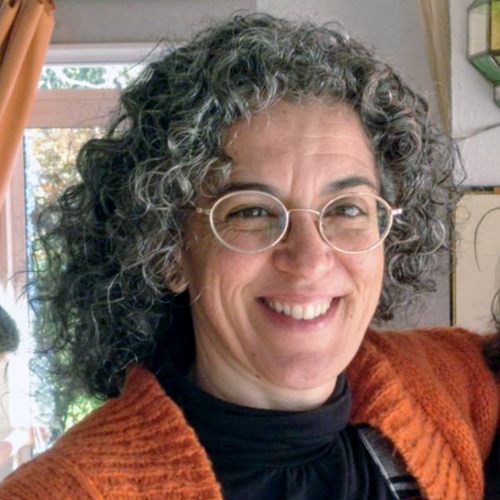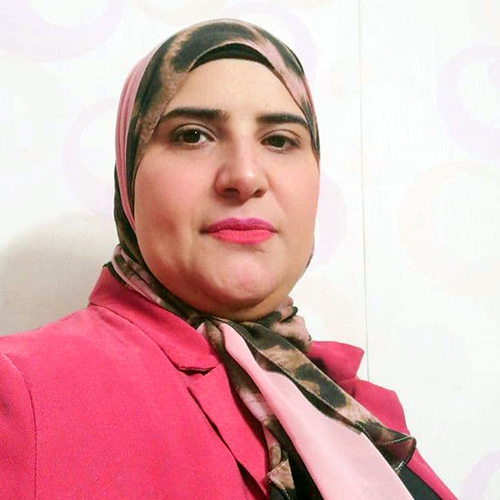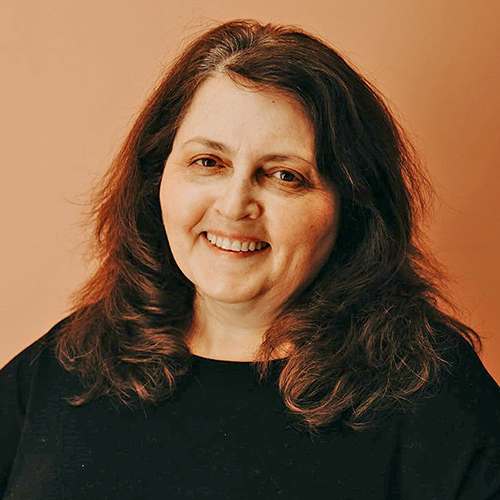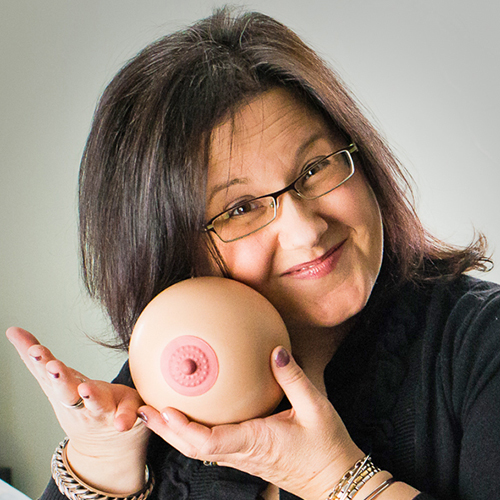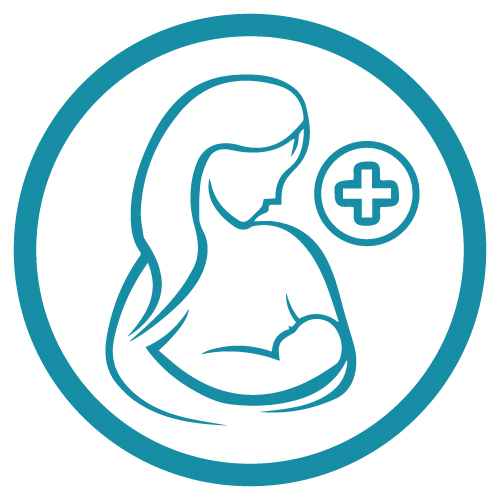 Breast and Nipple Pain Online Course(s) & Continuing Education
Breast and Nipple Pain Online Course(s) & Continuing Education
Access the latest clinical skills and research for Breast and Nipple Pain for Lactation & Breastfeeding professional training. These Breast and Nipple Pain online courses provide practice-changing skills and valuable perspectives from leading global experts. This Breast and Nipple Pain education has been accredited for a variety of CEUs / CERPs and can be accessed on-demand, at your own pace.
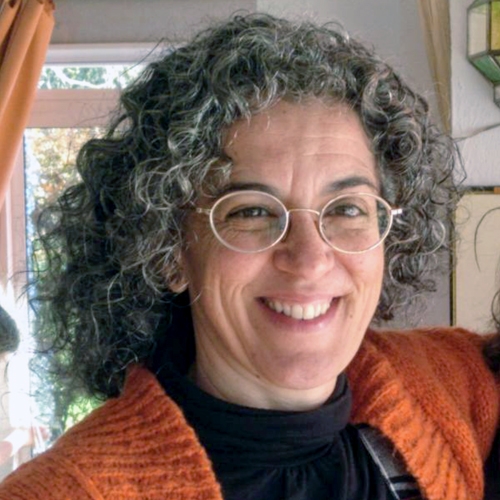
An Ecosystemic Approach to the Clinical Management of Breast and Nipple Pain

Carmela is a family medicine MD, bachelor´s degree in Public Health Education, and IBCLC since 2005. She is also a BFHI Evaluator and the co founder and past president of the Spanish Lactation Consultant Association (AECCLM). She works in a private Family Wellness Clinic, Raices, as person in charge of the lactation program, which includes two IBCLCs attending breastfeeding families and an extensive offer of breastfeeding training for health care professionals and breastfeeding peer counsellors. The team has trained over three thousand doctors, midwives and nurses from both the Spanish National Health Service and the private sector in Spain. She is a frequent lecturer at national conferences, and has also lectured internationally, both on-site and online. She is the author of several scientific papers on breast pain, mastitis and tongue tie. She is also the author of a breastfeeding/parenting book, “Amar con los Brazos Abiertos” (To Love with Open Arms). She is married to Carlos and they homeschool their four children.
Topic: Assessment and Management of Mastitis - [View Abstract]
Topic: Getting Milk Production off to a Good Start - [View Abstract]
Topic: Management of Chronic Breast Pain: Holistic Approach - [View Abstract]
Topic: The Art and the Science: A Critical Look at the Physiology and Management of Mastitis - [View Abstract]
Although pain is not a normal part of nursing, many mothers experience this difficulty at some point in their breastfeeding journey. It is one of the main reasons for breastfeeding consultations, and an important cause of early, undesired weaning, especially if the infant is not thriving. Assessment of pain during lactation differs significantly from other types because it is a system we must explore – not a single patient but the interaction between the mother and her infant (that is, the dyad). In this talk, an ecosystemic overview of the evaluation and management of breast and nipple pain is offered, based on current research and clinical practice. With appropriate support, the vast majority of dyads are able to breastfeed comfortably and effectively.
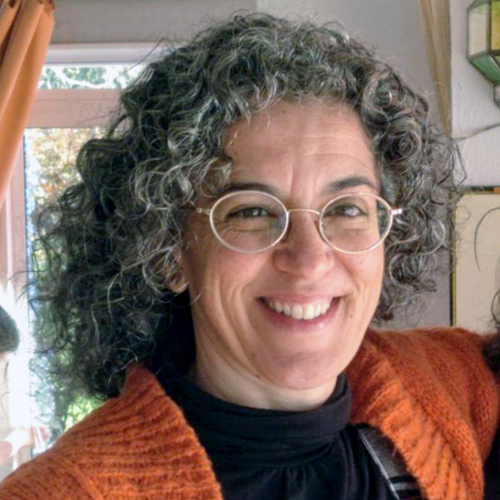
View Details / Enroll
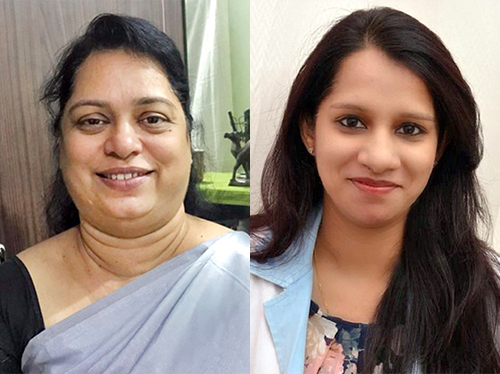

Ruth Patterson is Cloud Nine's P I O N E E R & Most Sought Lactation Specialist with 33 years of rich experience - currently practicing at Jayanagar C9, Bangalore-India and a visiting Lactation Consultant with 9 other Cloud Nine branches locally. She also heads the 24 Pan India Cloud Nine Hospitals as the Manager Lactation.
Ruth's 30+ years of rich experience includes maternity, allied health and nursing care, both in rural and urban sector in India & Abroad. Her exclusive 18 years of experience in Lactation services, she has acquired immense practical knowledge in the last decade to identify most critical disorders of mother and babies during breastfeeding stage. She is acclaimed to have expertise in a lesser-known art of re-lactation and induced lactation.
Ruth is known for her ability to identify the most critical issues in Breastfeeding and restore/re-initiate feeds. She is acclaimed for the use of Dynamic Taping (only available at Jayanagar C9) that arrests/prevents breast surgery/abscess. This Dynamic Taping practice, alongside, a Gynecologist, Pediatrician and Physiotherapist at Cloud Nine, is patented.
Ruth is a well sought out person for patient hearing and provides her expert comments in News columns/Media and also delivers guest lectures.
Dr. Shazia Shadab (PT) is the HOD of the Cloud nine physiotherapist department (PAN-India). She has 10 years experience and has been exceptional in her career with constant learning of new skills and improvising in her services.
She has multiple articles published in acclaimed newspapers
and many international certifications affiliated with her name like
pelvic girdle dysfunction, labor mechanism, and has done basic advanced certification in dynamic tapping to name a few. She also has pursued her post-graduation in research methodology after her bachelor's in physiotherapy.
She has always been keen to learn how to progress in a variety of different treatment approaches to find better results. This has helped her and her team to develop an intervention to prevent breast abscess with no surgical approach and has been granted a patent on "a device to promote feeding and scar-free treatment of breast abscess treatment during lactation".
She has worked along with professionals like Dr. Kishore Kumar, Dr. Prakash Kini, and Ruth Patterson, and has treated more than 100 patients suffering from breast abscesses without any surgical intervention. This would be an exceptional resource to help and provide better care.
She has extensive expertise in not only treating but also preventing multiple
musculoskeletal conditions during pregnancy and postpartum. She has been awarded the ABCD (Above and Beyond the Call on Duty) Award for her unwavering and selfless dedication to her patients.
"Lactational breast abscess is a common problem during breastfeeding. Surgical treatment of breast abscess involves maternal child separation and discontinuation of breast feeding. Surgical intervention with its inherent anxiety and probable unwanted side effects can deprive the lactating parent and baby of innumerable benefits. Non-surgical therapeutic modalities can potentially circumvent these problems. Dynamic taping with the help of a physiotherapist is a potential non-surgical intervention. This presentation presents the results of an observational, cohort study which was conducted in 20 consenting mothers with breast abscess attending an out-patient services tertiary maternal and neonatal unit. The mothers were administered two layers of dynamic tape as a single long segment on the breast avoiding the areola in an outward radiating direction to optimize lymphatic flow. Treatment was considered successful if there was resolution of the breast abscess with or without natural oozing."
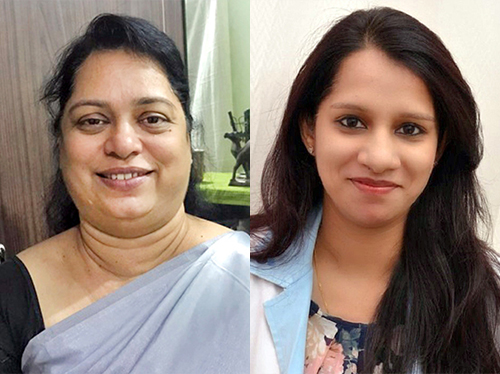
View Details / Enroll


Carmela is a family medicine MD, bachelor´s degree in Public Health Education, and IBCLC since 2005. She is also a BFHI Evaluator and the co founder and past president of the Spanish Lactation Consultant Association (AECCLM). She works in a private Family Wellness Clinic, Raices, as person in charge of the lactation program, which includes two IBCLCs attending breastfeeding families and an extensive offer of breastfeeding training for health care professionals and breastfeeding peer counsellors. The team has trained over three thousand doctors, midwives and nurses from both the Spanish National Health Service and the private sector in Spain. She is a frequent lecturer at national conferences, and has also lectured internationally, both on-site and online. She is the author of several scientific papers on breast pain, mastitis and tongue tie. She is also the author of a breastfeeding/parenting book, “Amar con los Brazos Abiertos” (To Love with Open Arms). She is married to Carlos and they homeschool their four children.
Topic: Assessment and Management of Mastitis - [View Abstract]
Topic: Getting Milk Production off to a Good Start - [View Abstract]
Topic: Management of Chronic Breast Pain: Holistic Approach - [View Abstract]
Topic: The Art and the Science: A Critical Look at the Physiology and Management of Mastitis - [View Abstract]
When a breastfeeding mother consults because of chronic, deep breast pain, we feel weak at the knees. Often these mothers have been to several specialists and nothing has worked for them. Is it mastitis? Thrush? Referred pain from an inadequate latch? Emotional issues? Or is it all of the above, and even more? In this presentation we will learn to do an in-depth clinical history and to use an holistic model for a systematic management of chronic breast pain, so we can offer these mothers more efficient solutions – and better counselling.

View Details / Enroll
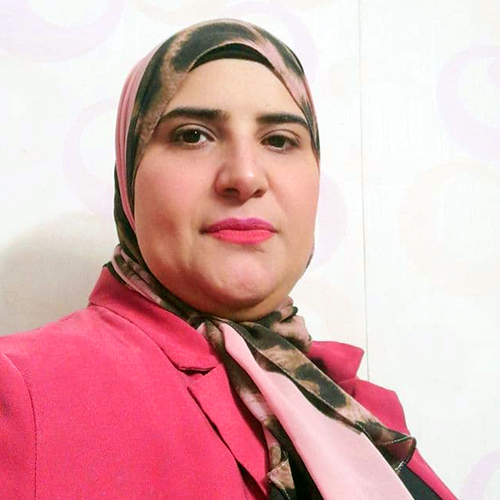

Dr.Fayrouz Essawy Pediatrician, Neonatologist, IBCLC • Neonatology Consultant • Bachelor of Medicine and surgery - Cairo University 2004 • Master degree of pediaterics - Ain shams University 2012 • Egyptian neonatology fellowship 2015 • IBCLC 2015 • LCCC course instructor & developer 2016 • Breastfeeding medicine specialist. • Baby friendly coordinator. • Harvard Graduate of Training of trainee program 2020. • Member of the Egyptian Society of Pediatrics • Member of the Egyptian lactation consultant association (ELCA) • Member of the academy of breastfeeding medicine (ABM) • Member of the international lactation consultant Association (ILCA)
The feeding of breast milk during the NICU admission reduces the risk of short-and long-term morbidities especially in premature infants. Breastmilk provides immunological, anti-infective, anti-inflammatory, epigenetic, and mucosal membrane protecting properties. The mechanisms by which human milk provides its protection are varied. These mechanisms include immunological and specific unique human milk components that are not present in formula. Thus, the feeding of mother’s own breastmilk should be a NICU priority and every NICU should have a breastmilk storage and handling policy. In this presentation we will discuss how we can counsel parents about the infection control measures and guidelines related to storage, handling and administration of breastmilk to babies in the NICU. Learn more about hospital grade pumps, pumping at home vs pumping in hospital setting, prevention and management of potential mistakes such as giving a child another mother’s milk and how to handle and store fortified breastmilk.

View Details / Enroll

Our Hands as Tools to Resolve Acute Breast Pain in the Early Postpartum Period

Maya Bolman was born and raised in Minsk, Belarus. She was certified as IBCLC in 2001 and currently works as a lactation consultant at Senders Pediatrics and Breastfeeding Medicine of Northeast Ohio.
Maya is well known internationally for her work promoting hand expression and breast massage to health professionals and parents. She recognizes that teaching these basic tools helps empower them to work through breastfeeding challenges including engorgement, plugged ducts, separation from the infant, and milk supply concerns.
She has worked with Dr. Ann Witt to create an instructional video “The Basics of Breast Massage and Hand Expression” and conducts research on the effectiveness of Therapeutic Breast Massage in Lactation (TBML) both in the office and as a treatment at home for mothers.
Topic: Our Hands as Tools to Resolve Acute Breast Pain in the Early Postpartum Period - [View Abstract]
Breast pain is a major cause of weaning. Milk stasis, which occurs in engorgement, mastitis and plugged ducts, is a common cause of pain that may lead to the temporary or permanent cessation of breastfeeding. Therapeutic Breast Massage in Lactation (TBML) is one clinical tool to help resolve breast pain quickly. Therapeutic Breast Massage in Lactation (TBML) provides a simple, readily accessible method that can be easily taught to parents and health professionals. Empowering parents to resolve complications at home may be a critical skill for extending breastfeeding duration.

View Details / Enroll
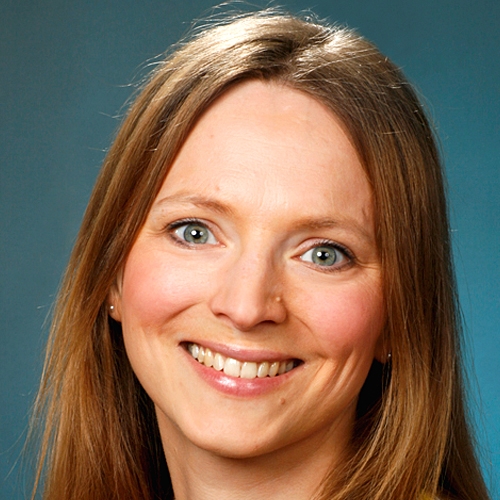
Persistent Pain During Breastfeeding - A Challenge in Lactation Counseling

Alexandra Glass is a gynecologist/ obstetrician and an International Board Certified Lactation Consultant working in Hanover, Germany, where she lives with her family. Alexandra is the Vice President of BDL Lactation Consultant Association. She speaks at Local, National and International conferences and she teaches preparatory courses for the IBCLC exam. She is the mother of two daughters, who were both breastfed.
This presentation will give an overview of the reasons that can cause painful breastfeeding and how we can intervene either via breastfeeding management or medically.
The reasons might be
- poor latch
- problems with sucking, like tongue tie or other anatomical issues, also nipple confusion
- vasospasms
- infections, mastitis
- Mammary Constriction Syndrome
- injuries or medical conditions of the skin, such as psoriasis, dermatoses, eczema
- oversupply
- plugged ducts
- incorrect pumping or hand expression
- allodynia/functional pain
- psychological and emotional aspects
Important aspects concerning breastfeeding management and counselling and possible therapeutic interventions will be discussed as well as the impact of painful breastfeeding on the breastfeeding dyad and the whole family.
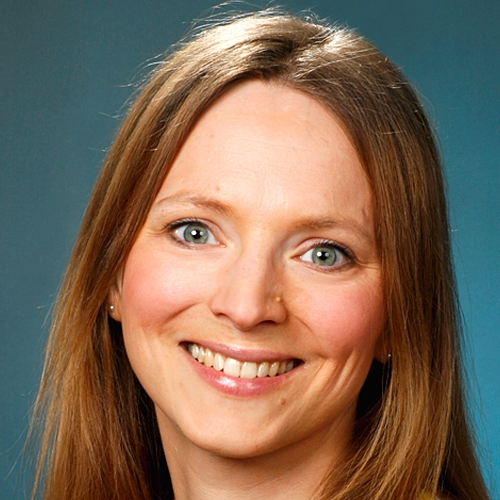
View Details / Enroll


Diana West is an IBCLC in private practice. She is the co-author of “Sweet Sleep: Naptime and Nighttime Strategies for the Breastfeeding Family,” the 8th edition of La Leche League International’s “The Womanly Art of Breastfeeding,” “The Breastfeeding Mother’s Guide to Making More Milk,” the clinical monograph “Breastfeeding After Breast and Nipple Procedures,” and ILCA’s popular “Clinician’s Breastfeeding Triage Tool.” She is the author of the “Defining Your Own Success: Breastfeeding After Breast Reduction Surgery.” She is on the Editorial Review Board for the “Journal of Clinical Lactation,” a La Leche League Leader and the Director of Media Relations for La Leche League International. She has a bachelor’s degree in psychology and is the administrator of the popular BFAR.org, LowMilkSupply.org, and LactSpeak.com websites. She lives with her three sons and one husband in the picturesque mountains of western New Jersey in the United States.
Topic: Mothers Speak Out: Top Five Traits of a Great Lactation Consultant - [View Abstract]
Topic: Mothers Speak Out: Top Five Traits of a Great Lactation Consultant - [View Abstract]
Topic: Postpartum Nipple Pain: Causes, Treatments, and Empathy - [View Abstract]
Topic: Sleep Training: History, Research, and Outcomes - [View Abstract]
Topic: Sweet Sleep: Bedsharing for Breastfeeding Mothers and Babies - [View Abstract]
In a vivid (and sometimes graphic!) presentation of photos contributed by lactation colleagues around the world, a wide variety of nipple pain causes, treatments, and counseling strategies are explored and discussed.
View Details / Enroll
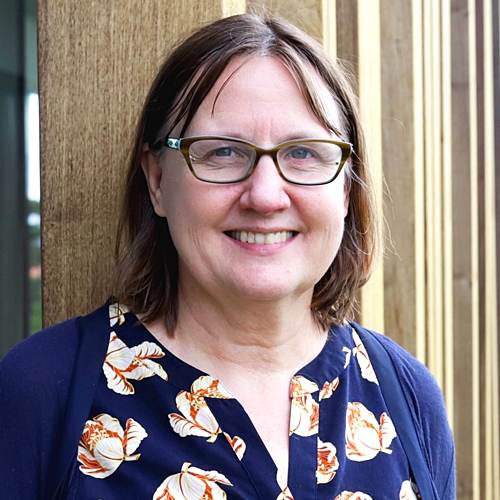
Promoting Self-Management of Breast and Nipple Pain for Women During Breastfeeding

Ruth Lucas, PhD, RNC, CLS, received her Bachelor of Science in Nursing from George Mason University (1986) and her Doctor of Philosophy of Science (2011) from the University of Illinois at Chicago. Based on 20 years of supporting women and infants to initiate breastfeeding, her research focuses on the biobehavioral mechanisms of breastfeeding, such as breast and nipple pain. Dr. Lucas and her team conducted a pilot randomized control trial (RCT) as part of the Center for Accelerating Precision Pain Self- Management (CAPPS-M) (P20NR016605). The pilot RCT tested the feasibility, acceptability, and efficacy of a breastfeeding self-management (BSM) intervention for breast and nipple pain during breastfeeding and found the BSM intervention significantly reduced breast and nipple pain and is associated with pain sensitivity polymorphisms. Her published work describes management of pain during breastfeeding, a clinical indictor of infant breastfeeding behaviors, and a biomedical device to measure breastfeeding in real time.
Topic: Promoting Self-Management of Breast and Nipple Pain for Women During Breastfeeding - [View Abstract]
Despite 90% of women experiencing breast and nipple pain during breastfeeding, mothers rarely receive adequate knowledge and skills for breastfeeding pain self-management and cease breastfeeding. Our randomized control trial (RCT) pilot study tested the feasibility, acceptability, and efficacy of a breastfeeding self-management intervention (BSM) on breast and nipple pain and breastfeeding outcomes. Sixty women were recruited after delivery and completed survey measures of pain and breastfeeding outcomes, pain sensitivity testing and a biological sample to assess genetic risk for pain at baseline. Both groups completed pain and breastfeeding outcomes surveys via texting links using REDCap 7.4. Women in the intervention group received biweekly nurse-lead texting and cloud-based educational modules addressing breast and nipple pain and breastfeeding challenges. The BSM intervention was acceptable and sustainable for 94% of the women who continued to breastfed to 6 weeks. Acute breast and nipple pain at 1 and 2 weeks were significantly reduced and was associated with pain sensitivity polymorphisms, suggesting a genetic risk profile of pain-associated breastfeeding cessation.
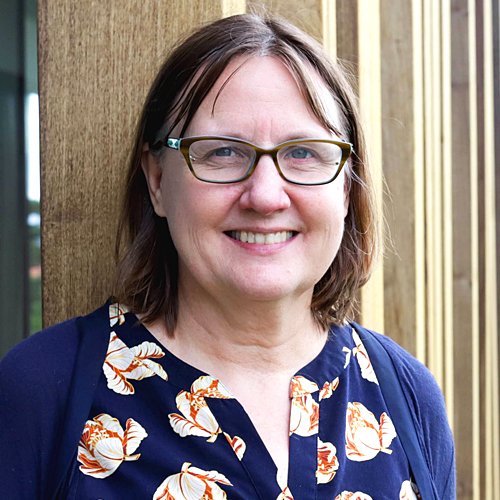
View Details / Enroll
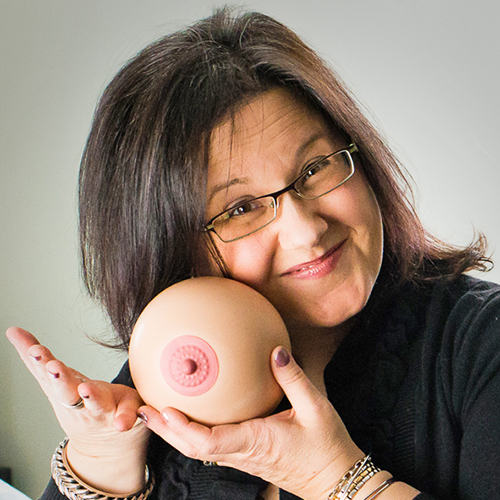
Pumping for Hospitalized Babies: 12 Keys to Supporting Families

Jeanette Mesite Frem, MHS, IBCLC, RLC, CCE is an experienced childbirth educator, IBCLC-lactation consultant and retired birth doula. She started her career working with families while serving as a Peace Corps Volunteer in Côte d'Ivoire, West Africa in the early 90s. She loved that work so much she went on to receive a public health masters degree from Johns Hopkins School of Public Health, focusing her studies on nutrition for maternal and child health. Her two children were breastfed for more than 2 years each and Jeanette has experience pumping at work for both children and has supported more than a thousand families with feeding and pumping over the last 20 years.
Jeanette provides prenatal childbirth and breastfeeding classes at her office in Northborough, Massachusetts, as well as providing virtual and office feeding consultations. She also enjoys leading workshops for perinatal health professionals and mentoring those who work with families. If you have questions, feel free to email [email protected].
Topic: Pumping for Hospitalized Babies: 12 Keys to Supporting Families - [View Abstract]
Perinatal professionals in hospitals have great influence over how much human milk a baby receives, as well as how encouraged parents feel related to pumping and initiating and maintaining their milk production and eventually meeting their infant feeding goals. When hospital staff help with pumping in the early hours, days, and weeks of a new and fragile baby’s life—especially when at breast, chest or body feeding isn’t possible—getting that professional support is likely to make a difference in the long-term health of that child as well as the health of their parent. Healthcare providers can facilitate milk collection and provision of it to babies and support parents with specific and updated guidance on pump choices, pump usage, flange fit and milk storage. Those who work in hospitals with families can make an important positive impact on long-term breastfeeding and human-milk feeding rates. This session will cover 12 simple ways (including the what, why, how, when and where of pumping) that healthcare providers can support parents who pump for their hospitalized baby.

View Details / Enroll
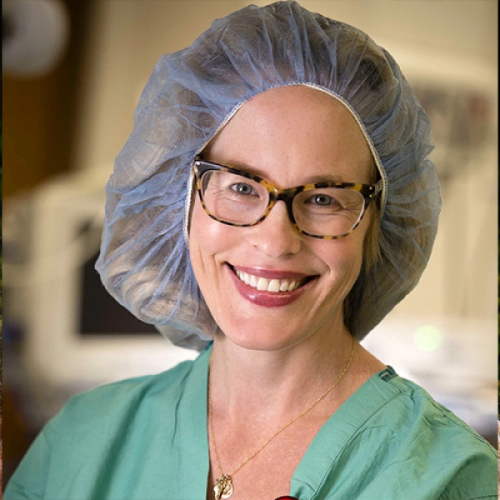

Katrina B. Mitchell, MD is a board-certified general surgeon, fellowship-trained breast surgical oncologist, and international board certified lactation consultant (IBCLC) whose practice includes the care and surgery of women with breast cancer and benign breast disease. She also treats maternal complications of lactation, and has a special interest in pregnancy and postpartum breast cancer. She resides in Santa Barbara, California and practices at the Ridley Tree Cancer Center at Sansum Clinic. She enjoys reading, traveling, and spending time with her son at the beach. More information about her clinical and educational interests is available at katrinamitchell.org.
This lecture reviews nipple and breast pain during pregnancy and both the early and late postpartum periods. It describes the anatomy and physiology of the breast and nipple areolar complex, and explores why pain during pregnancy and lactation is so common. Specific topics include the relationship between engorgement and infant latch; pump and other nipple trauma; hypo- and hyperlactation and how pain presents in these populations; vasospasm; dermatitis; nipple blebs; and, mastitis and plugging. The lecture also covers infant considerations and defines the lack of evidence for fungal infections as a significant contributor to pain. It delineates identification and treatment of functional pain and overlap of perinatal mood and anxiety disorders with pain.




